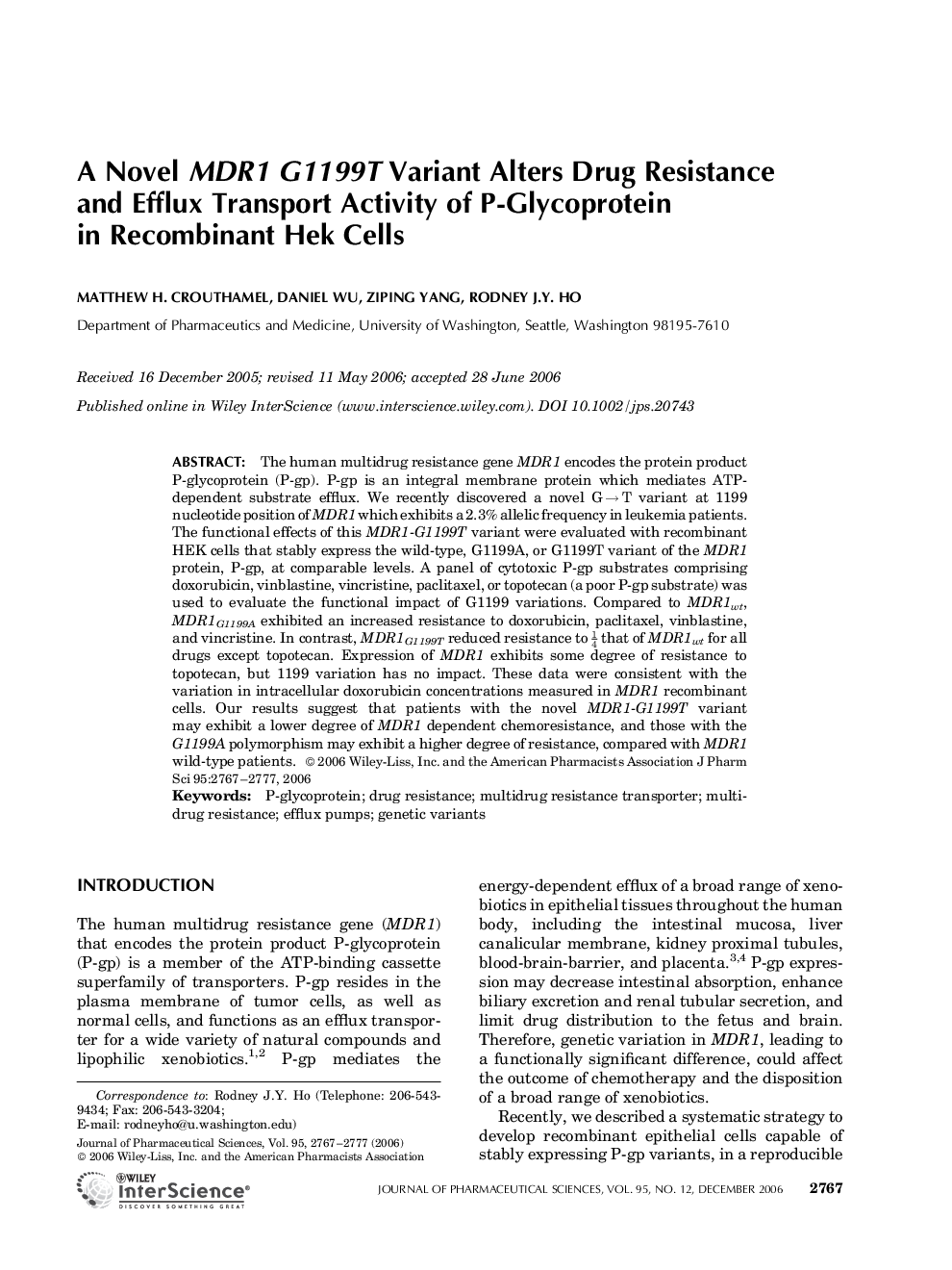| Article ID | Journal | Published Year | Pages | File Type |
|---|---|---|---|---|
| 2487917 | Journal of Pharmaceutical Sciences | 2006 | 11 Pages |
Abstract
The human multidrug resistance gene MDR1 encodes the protein product P-glycoprotein (P-gp). P-gp is an integral membrane protein which mediates ATP-dependent substrate efflux. We recently discovered a novel GâââT variant at 1199 nucleotide position of MDR1 which exhibits a 2.3% allelic frequency in leukemia patients. The functional effects of this MDR1-G1199T variant were evaluated with recombinant HEK cells that stably express the wild-type, G1199A, or G1199T variant of the MDR1 protein, P-gp, at comparable levels. A panel of cytotoxic P-gp substrates comprising doxorubicin, vinblastine, vincristine, paclitaxel, or topotecan (a poor P-gp substrate) was used to evaluate the functional impact of G1199 variations. Compared to MDR1wt, MDR1G1199A exhibited an increased resistance to doxorubicin, paclitaxel, vinblastine, and vincristine. In contrast, MDR1G1199T reduced resistance to ¼ that of MDR1wt for all drugs except topotecan. Expression of MDR1 exhibits some degree of resistance to topotecan, but 1199 variation has no impact. These data were consistent with the variation in intracellular doxorubicin concentrations measured in MDR1 recombinant cells. Our results suggest that patients with the novel MDR1-G1199T variant may exhibit a lower degree of MDR1 dependent chemoresistance, and those with the G1199A polymorphism may exhibit a higher degree of resistance, compared with MDR1 wild-type patients.
Keywords
Related Topics
Health Sciences
Pharmacology, Toxicology and Pharmaceutical Science
Drug Discovery
Authors
Matthew H. Crouthamel, Daniel Wu, Ziping Yang, Rodney J.Y. Ho,
